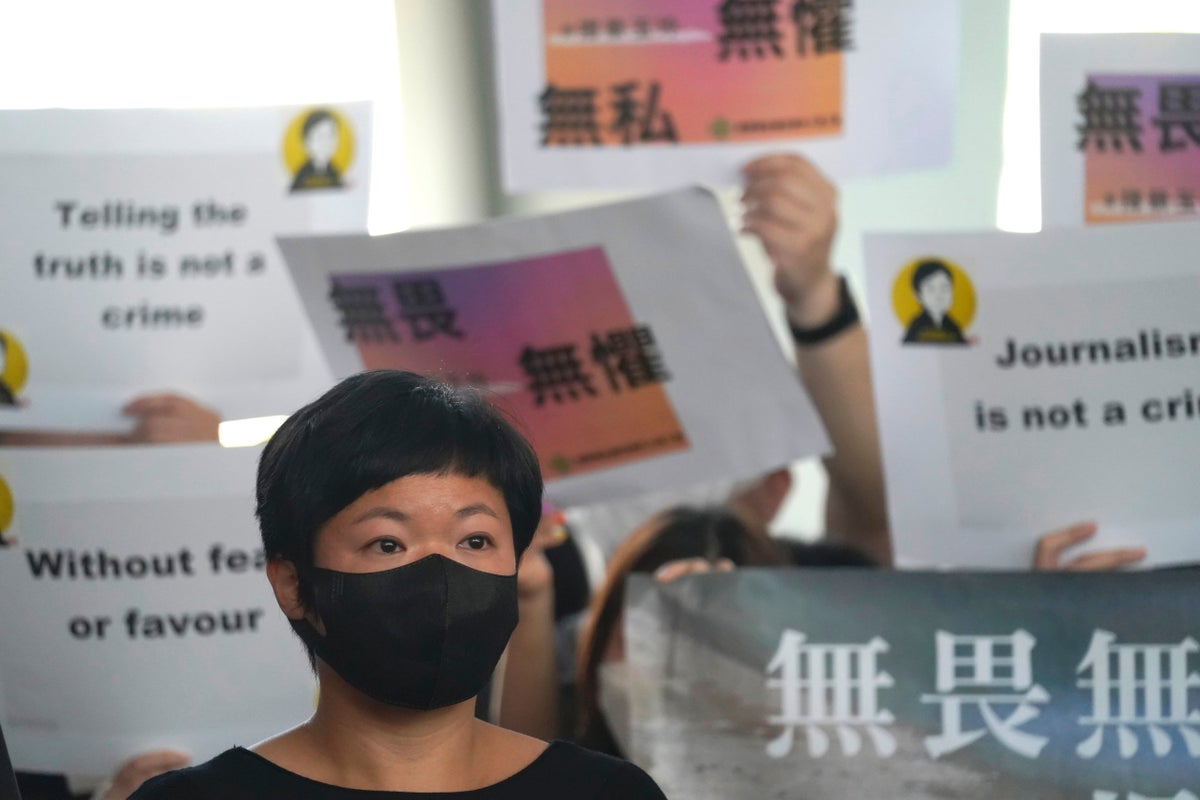
An award-winning Hong Kong journalist lost her appeal Monday against her conviction over making false statements in obtaining information for her investigation of a violent attack during the widespread protests in 2019.
Bao Choy was found guilty in April 2021 at a lower court of deceiving the government by getting vehicle ownership records for journalistic purposes, instead of for transport-related issues as she had declared. She was trying to track down perpetrators of a mob attack on protesters and commuters inside a train station for her documentary for public broadcaster RTHK.
The previous ruling sparked outrage among local media professionals over the city's shrinking press freedoms. Choy — who was fined 6,000 Hong Kong Dollars ($765) for two counts of making false statements — called it “a very dark day for all journalists in Hong Kong" at that time.
High Court Justice Alex Lee upheld the verdict in a written judgment.
“I don't deny that the appellant was trying to obtain the information with good intentions. But as the magistrate had pointed out, in terms of conviction, having good intentions is not a justification," Lee said.
The story Choy co-produced, titled “7.21 Who Owns the Truth,” won the Chinese-language documentary award at the Human Rights Press Awards in 2021. The judging panel hailed it as “an investigative reporting classic” that had chased “the smallest clues, interrogating the powerful without fear or favor."
In the months after the journalist was convicted, two media outlets — Apple Daily and Stand News — were forced to shut down during an ongoing crackdown on dissents following the 2019 protests in the semi-autonomous Chinese city. Hong Kong, a former British colony, returned to China’s rule in 1997.
Some of the top management of the two outlets also have been prosecuted. Apple Daily founder Jimmy Lai faces collusion charges under a sweeping National Security Law enacted in 2020. A trial for two former Stand News editors charged under a colonial-era sedition law that has been used increasingly to snuff out critical voices is underway.
Hong Kong fell more than 60 places to 148th place in Reporters Without Borders’ latest World Press Freedom Index released in May.







